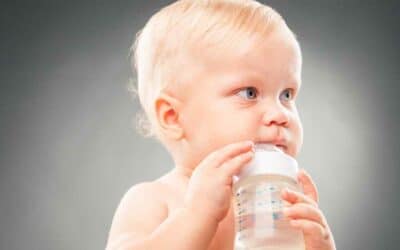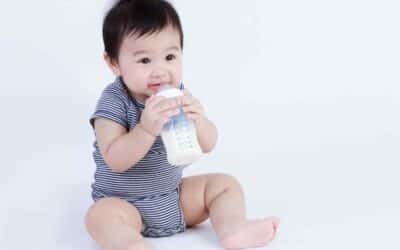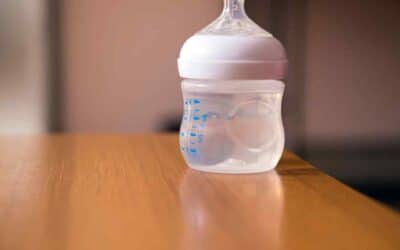As a new parent, taking care of your baby’s health and nutrition encompasses many aspects. One of the pivotal considerations is the quality of water used in baby formula. While seemingly simple, this issue takes on paramount importance when we account for the potential impurities found in tap water. The presence of these contaminants can critically impact your infant’s well-being. This blog will expand on this issue, spotlight the common impurities in tap water, explain their effects on your baby’s health, and provide practical suggestions to secure the purity of your child’s water. The aim isn’t to alarm but to inform and emphasize the importance of defensive actions to guarantee the health and nutrition of your newborn.
In this blog, an in-depth discussion awaits, where we will share the specifics of typical tap water contaminants like Fluoride, Chlorine, Lead, Pesticides, and Bacteria. Here, you’ll also discover strategies to ensure the quality of water, including testing, using bottled water, boiling, and installing a water filtration system. Understanding these risks is your first step towards making more informed decisions about the water you use in your baby’s formula. We are also going to guide you on the best practices for preparing infant formula – a primary source of nutrition for many babies. Indispensable topics like cleanliness, proper water selection, accurate formula storage, and the right temperature for mixing will be covered. Through the insights shared in this blog, you’ll guarantee that your baby gets all the necessary nutrients needed for healthy development in a safe, risk-free manner.
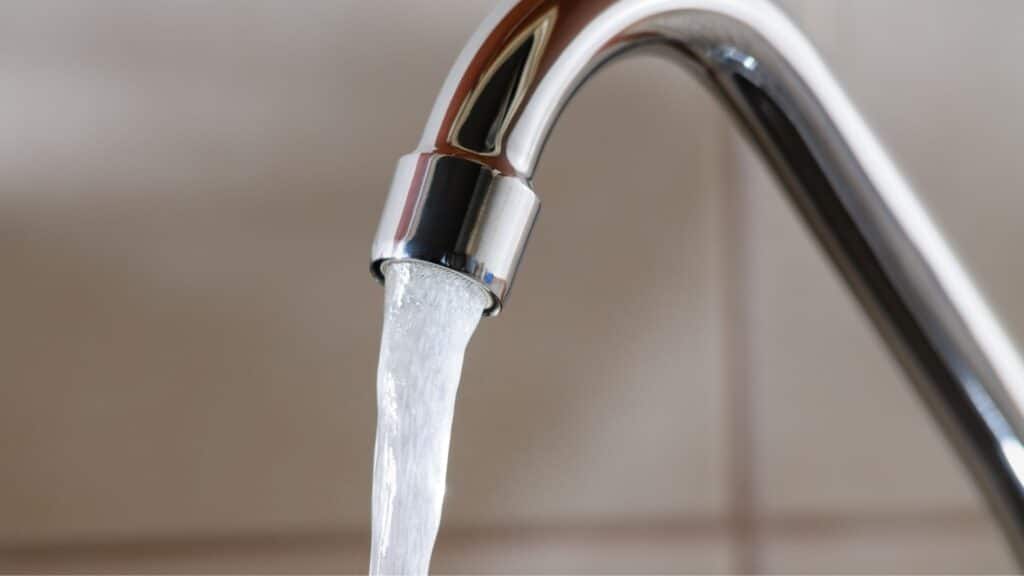
Determine The Water That is Safe for Infant Formula
Almost all municipal water supplies that service tap water are safe, especially for infant formula. Additionally, bottled water is also safe as you prepare infant formula.
Boiling water is highly advisable for premature babies or with poor immune systems. It would help if you also considered using it to make infant formula for babies under three months old. It’s also best to follow the formula guidelines the Centers for Disease Control set to ensure your baby’s safety.
Using boiled water can also be an option. However, you need to let it cool for at least thirty minutes before it’s ready for your baby. You can also consider contacting your local water company to get the water tested.
Meanwhile, if you have a private well at home, it’s also best to get the water regularly tested to ensure it’s free from contamination. You can also request your local health department to get it tested.
What is in Tap Water?
The water you drink from your faucet has been treated, but it still contains some of the same contaminants that were in the source water. Although these contaminants are usually very low, they can be harmful to your health.
The most common impurities in tap water include:
Fluoride
Fluoride is added to water supplies as a way to help prevent tooth decay. It also helps reduce the occurrence of cavities for children who drink fluoridated water. However, it is important to note that excessive fluoride intake can lead to dental fluorosis, which is a condition that affects the appearance of teeth.
Mild fluorosis, characterized by faint white lines or streaks on permanent teeth, is not usually a cause for concern. However, severe fluorosis can cause brown spots and pits on the teeth, which may require dental treatment.
Chlorine
Chlorine is commonly used to eliminate harmful bacteria and microorganisms in drinking water, especially in areas with inadequate sanitation systems. However, excessive chlorine exposure can lead to health problems, particularly for individuals with a weakened immune system.
Moreover, chlorine can worsen symptoms for those who suffer from asthma or allergies. It is recommended to contact your local health department to get information about the quality of the tap water in your area and to take necessary precautions to minimize exposure to excessive chlorine levels.
Lead
Lead exposure can have significant and lasting health consequences, particularly for children under the age of 6. This can lead to developmental delays and behavioral problems, as well as damage to organs such as the kidneys and nervous system.
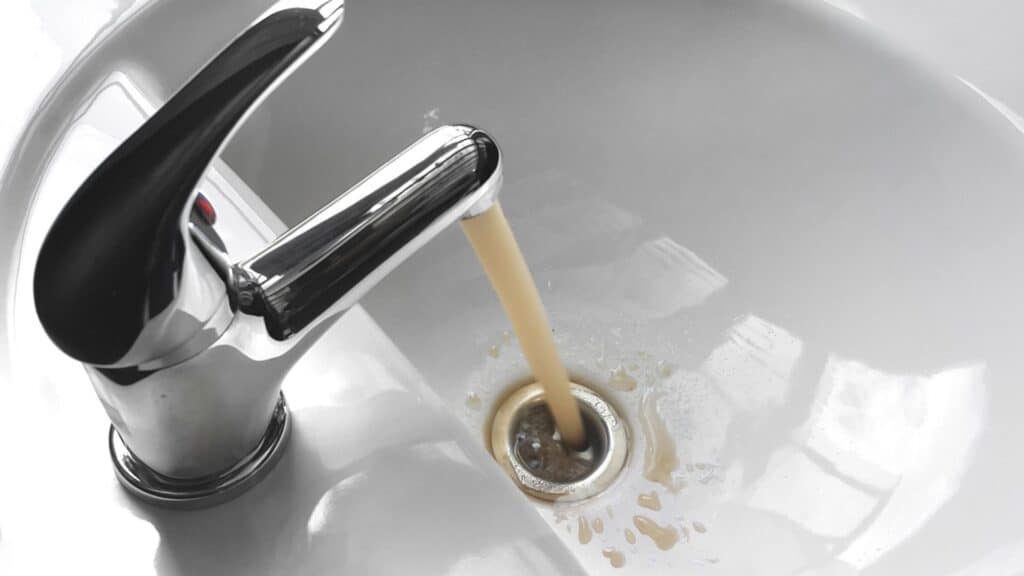
Pesticides
Pesticides are commonly used to eliminate insects and weeds, but they can pose a threat to humans. Studies conducted by the Environmental Working Group found that roughly 60% of municipal water supplies contain pesticide residues. This means that when you drink or feed your child tap water, you could be exposing them to these harmful chemicals.
Bacteria
It’s important to ensure that the water you and your child drink is not contaminated with harmful bacteria. While treatment plants are required to filter out bacteria, there is still a risk of contamination.
One way to stay informed about the quality of your drinking water is to check your local municipality’s annual water quality report, which will provide information on any problems with your water supply and what is being done to address them.
Additionally, using natural water sources like springs or wells can also carry risks of bacterial contamination, so it’s important to have these sources tested before drinking from them.
How Impurities in Water Affect Baby Formula
Impurities in water can affect the quality of the baby formula. Water that is too hard or too soft, has an excessive amount of calcium or magnesium, or has high concentrations of iron, arsenic, and nitrate can hurt your child’s health if they are given contaminated formula made with that water.
Importance of Following Guidelines for Safe Infant Formula Preparation
To safely prepare baby formula, it’s important to follow the guidelines recommended by organizations like the World Health Organization and the Centers for Disease Control and Prevention.
The parent must follow the proper preparation guidelines for powdered or ready-to-feed formula. This includes using the correct ratio of water to formula, washing hands and bottles thoroughly before use, and using prepared formula within the recommended time frame to avoid bacterial growth.
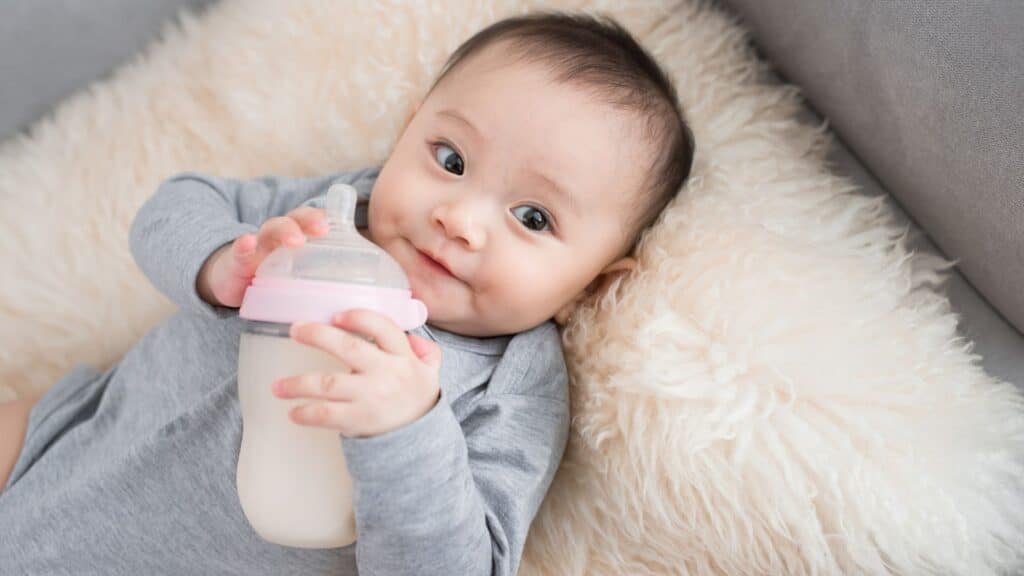
This is especially important because infants are more vulnerable to impurities in water due to their developing immune systems and more absorbent digestive tracts.
By following these guidelines, parents can safely prepare baby formula and ensure that their babies are getting the best nutrition possible without the added risk of harmful impurities, heavy metals, or disease-causing contaminants in their water.
Essential Reasons Why You Shouldn’t Use Tap Water When Preparing Your Baby’s Formula
Increases the Risk of Dental Fluorosis
Although fluoridated water has its benefits, especially regarding dental health, too much fluoride intake can make babies prone to dental fluorosis. Dental fluorosis is faint white lines that appear on a person’s enamel. It usually happens when a person gets exposed to too much fluoride at a young age.
Every local health department has fluoride added to their water systems to help promote better dental health. However, since babies are in their early stages, exposure to excessive amounts can cause them to develop faint white lines. If not addressed immediately, it may affect his adult teeth in the long run.
So, to address such problems, it’s best to choose low-fluoride bottled water when preparing baby formula—doing so guarantees that your baby will be safe from excessive fluoride exposure and even save your baby’s permanent teeth from discoloration.
You can consider reading the printed in the bottle to let you know how much fluoride it contains. It’s an effective way to determine if it has the right amount of fluoride.
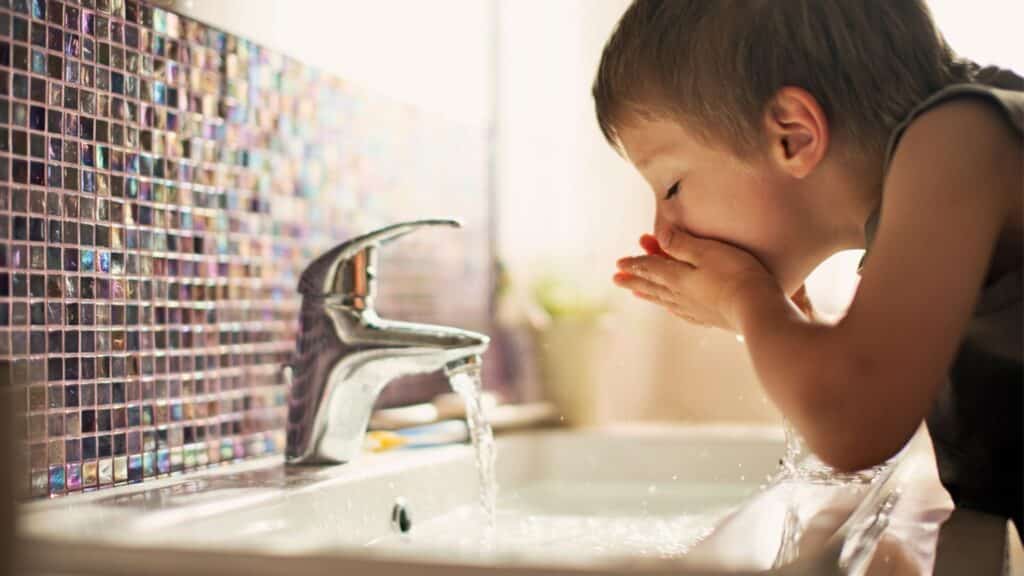
May Be Prone to Bacterial Contamination
Tap water sources in the country undergo a series of purification procedures to ensure their safety. However, there are times when something unexpected can happen.
A natural calamity or an accident may cause damage to the pipelines. Thus, potentially causing chemicals, bacteria, and viruses to seep into the water supplies.
When this happens, it can cause everyone in the community to suffer from possible bacterial infections. Even worse, using it to make powdered infant formulas increases your child’s risk of developing various illnesses.
It May Contain Pesticide Residues
There are also instances when water supplies may contain pesticide residue and other chemicals. So, if you need clarification on the water quality, it’s best to get the water tested. Consider using low-fluoride bottled water to make your baby’s formula.
Another way to ensure the safety of your drinking water is by installing a home filtration system. Doing so ensures that your tap water supply will be free of any contaminants that may affect your child’s health.
Protecting Your Baby from Impurities in Tap Water
When it comes to choosing the right water for baby formula, it’s important to consider the level of impurities in the water.
To ensure that your baby gets the nutritional benefits they need from its formula, consider using low-fluoride bottled water, purified water, or distilled water.
It’s also important to use water that is at a safe temperature for your baby, either hot water that has been boiled and cooled or cool water that has been purified or distilled.
Remember, when it comes to preparing baby formula, it is important to choose the right type of water to avoid exposing your infant to impurities and contaminants.
If you’re concerned about the quality of tap water, there are steps you can take to protect your child.
Strategies for Ensuring Water Quality
Test Your Water: Contact your local water authority or a certified water testing lab to get your tap water tested for other contaminants. This will help identify any potential risks and inform you about necessary precautions you can take.
Purchase Bottled Water: If you are unable to obtain clean water or install a filtration system, you may want to consider purchasing bottled water for use in baby formula preparation.
Boil Water: If you do not have access to clean water or a filtration system, boiling tap water can help reduce the risk of bacterial contamination. Boil the water for at least one minute, then let it cool before using it to make the formula.
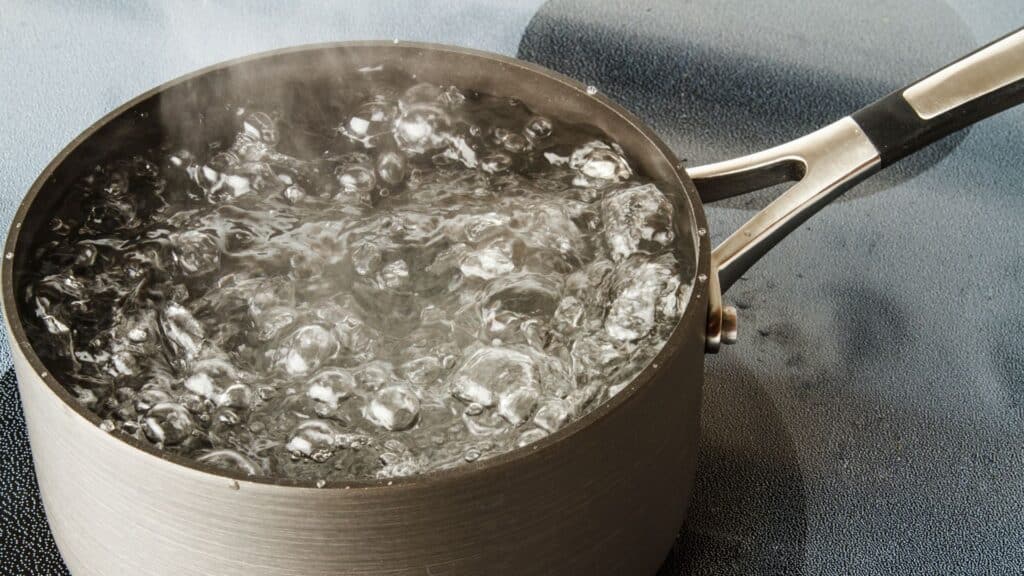
Install a Water Filtration System: Consider installing a home water filtration system to remove impurities from your water. There are a variety of systems available, ranging from simple pitcher filters to more complex systems that treat the water at the point of entry.
The American Academy of Pediatrics recommends using distilled water, bottled water, or purified water for mixing baby formula instead of tap water. These alternatives are typically free from harmful substances and can provide peace of mind when it comes to ensuring the safety and nutritional quality of your baby’s formula.
Alternatively, you can also use a concentrated liquid formula that does not require any water at all. It is recommended to consult with a board-certified pediatrician or follow the guidelines from the American Academy of Pediatrics for the prevention of risks associated with infant formula preparation. Large amounts of certain minerals and nutrients, such as iron or vitamin D, can also be harmful, so it is important to mix infant formula according to the instructions on the label.
Understanding Water Treatment and Filtration Options
Understanding water treatment and filtration options is essential to protect babies from impurities in tap water. Here are some options to consider:
Reverse Osmosis: Reverse osmosis is a water treatment method that uses a semipermeable membrane to remove impurities from water. It can effectively remove contaminants such as lead, chlorine, and bacteria from the water.
Distillation: Distillation is another water treatment method that involves boiling water and collecting the steam, which is then condensed back into the water. This process removes impurities.
Activated Carbon Filters: Activated carbon filters are a type of water filtration system that uses activated carbon to remove impurities from water. They can be installed under the sink or attached to a faucet to filter water as it flows through.
UV Sterilization: UV sterilization is a water treatment method that uses ultraviolet light to kill bacteria, viruses, and other microorganisms in water. It is an effective method for treating water that may be contaminated.
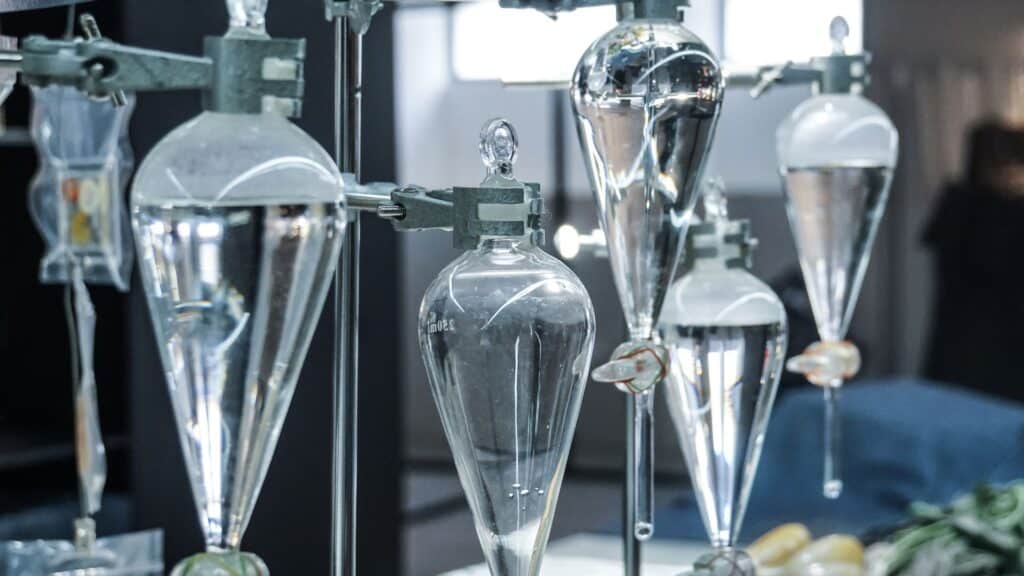
The best way to protect your baby from impurities in tap water is by installing a water purification system. If you don’t want to install a water purification system, the next best thing is to use bottled water.
Best Practices for Preparing Infant Formula
Serving as the primary source of nutrition for non-breastfed babies, infant formula plays a pivotal role in your child’s initial growth and development phase. As such, appropriate preparation of the formula is of utmost importance, ensuring that your little one receives well-rounded nutrition, free from potential health risks that could arise from contaminants. To navigate your way through the process, we present you with a select set of best practices that can serve as a trusted guide ensuring safe, nutrient-dense infant formula preparation for your child’s optimal health.
Cleanliness and Sanitization
Maintaining a clean and sanitized environment is crucial while preparing formulas. Before preparing the formula, ensure that hands, surfaces, and equipment are washed thoroughly. Use hot, soapy water to clean bottles, nipples, and other feeding equipment, and then sterilize them in boiling water or a sterilizer.
Water Selection and Preparation
Choosing the right type of water for formula preparation is important. It is recommended to use bottled or filtered water that has been boiled and cooled to room temperature. Always measure the water carefully to ensure the correct ratio of formula to water, and do not use hot water, as it can destroy some of the formula’s nutrients.
Formula Storage and Handling
Proper storage and handling of baby formula are essential to ensure that it stays fresh and safe. Always follow the manufacturer’s instructions for storage, and use the formula within the expiration date. Discard any leftover formula that has been in the bottle for more than an hour.
Temperature and Mixing
When mixing the formula, always use the scoop provided by the manufacturer and level it off. Add the formula to the water and mix gently until it dissolves completely. Check the temperature of the formula before feeding, as it should be lukewarm, not hot. Test the temperature by dropping a small amount on your wrist.
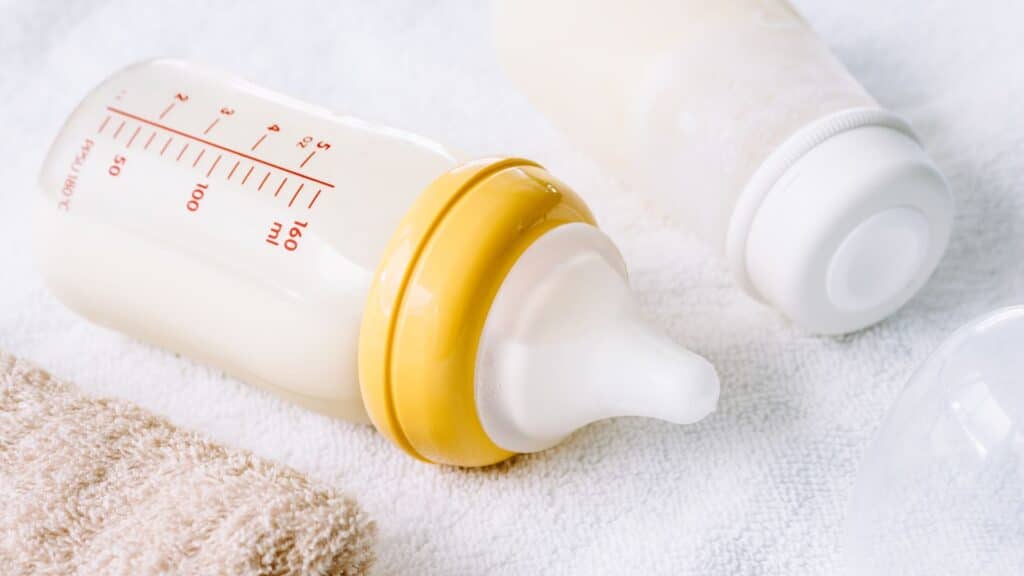
Conclusion
In conclusion, the quality of tap water can have a significant impact on your baby’s health. Parents must take extra precautions to ensure that the water they use to prepare baby formula is clean and safe. Contaminants like chlorine, fluoride, lead, pesticides, and bacteria can harm an infant’s developing immune system and lead to illness and poor nutrition.
To protect your baby from impurities in tap water, parents can take steps such as testing tap water, purchasing bottled water, boiling water, or installing a home water filtration system. Understanding the water treatment and filtration options available can help parents choose the best method for their family’s needs.
Remember, following guidelines for safe baby formula preparation and using clean, purified water with low levels of impurities can help ensure that your baby gets all the necessary nutrients they need for healthy development. As a new parent, it’s essential to prioritize your baby’s health and take steps to protect them from potential harm.
If you have any questions, please don’t hesitate to leave a comment below.

